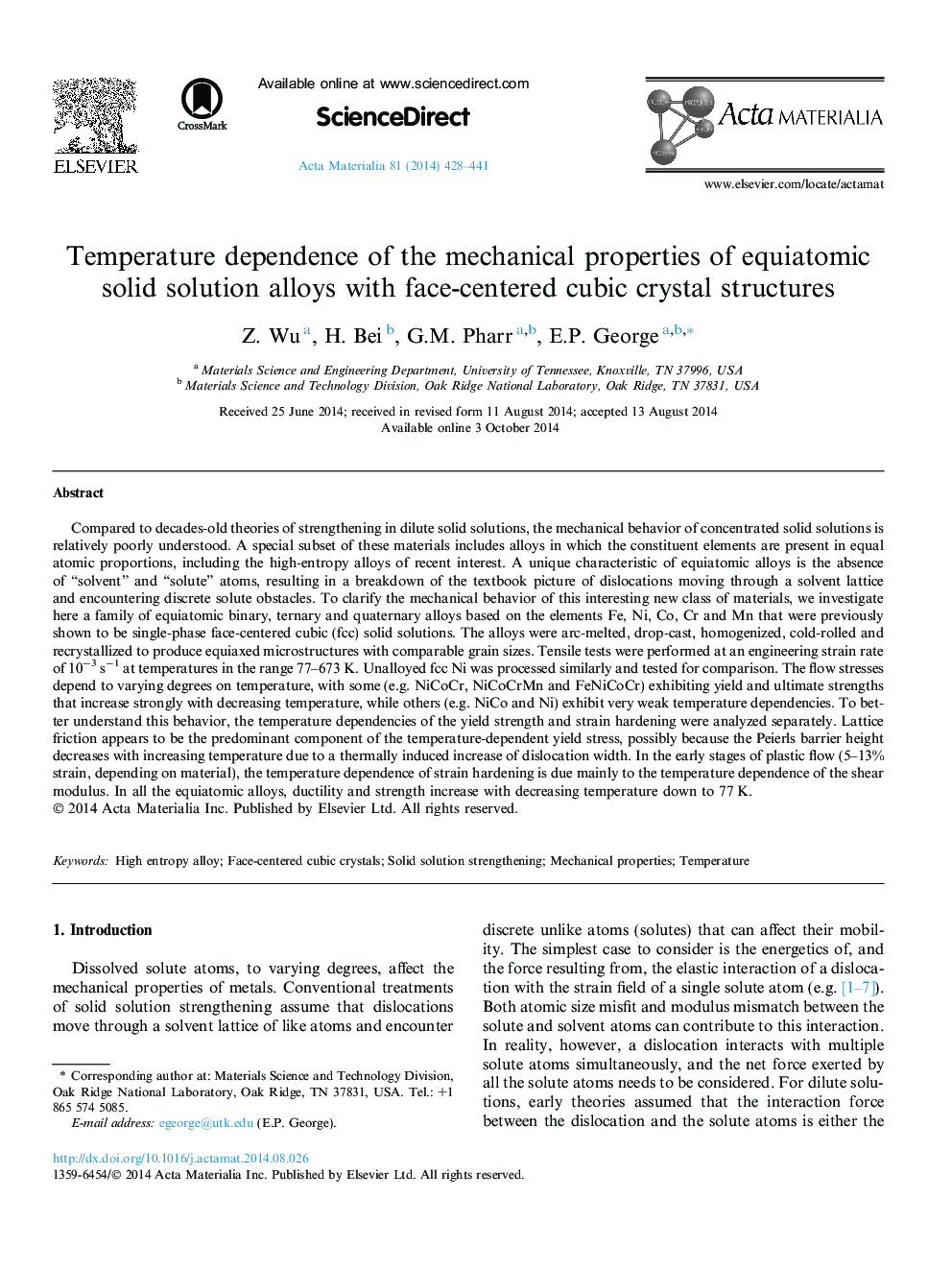| کد مقاله | کد نشریه | سال انتشار | مقاله انگلیسی | نسخه تمام متن |
|---|---|---|---|---|
| 1445632 | 1509595 | 2014 | 14 صفحه PDF | دانلود رایگان |

Compared to decades-old theories of strengthening in dilute solid solutions, the mechanical behavior of concentrated solid solutions is relatively poorly understood. A special subset of these materials includes alloys in which the constituent elements are present in equal atomic proportions, including the high-entropy alloys of recent interest. A unique characteristic of equiatomic alloys is the absence of “solvent” and “solute” atoms, resulting in a breakdown of the textbook picture of dislocations moving through a solvent lattice and encountering discrete solute obstacles. To clarify the mechanical behavior of this interesting new class of materials, we investigate here a family of equiatomic binary, ternary and quaternary alloys based on the elements Fe, Ni, Co, Cr and Mn that were previously shown to be single-phase face-centered cubic (fcc) solid solutions. The alloys were arc-melted, drop-cast, homogenized, cold-rolled and recrystallized to produce equiaxed microstructures with comparable grain sizes. Tensile tests were performed at an engineering strain rate of 10−3 s−1 at temperatures in the range 77–673 K. Unalloyed fcc Ni was processed similarly and tested for comparison. The flow stresses depend to varying degrees on temperature, with some (e.g. NiCoCr, NiCoCrMn and FeNiCoCr) exhibiting yield and ultimate strengths that increase strongly with decreasing temperature, while others (e.g. NiCo and Ni) exhibit very weak temperature dependencies. To better understand this behavior, the temperature dependencies of the yield strength and strain hardening were analyzed separately. Lattice friction appears to be the predominant component of the temperature-dependent yield stress, possibly because the Peierls barrier height decreases with increasing temperature due to a thermally induced increase of dislocation width. In the early stages of plastic flow (5–13% strain, depending on material), the temperature dependence of strain hardening is due mainly to the temperature dependence of the shear modulus. In all the equiatomic alloys, ductility and strength increase with decreasing temperature down to 77 K.
Journal: Acta Materialia - Volume 81, December 2014, Pages 428–441